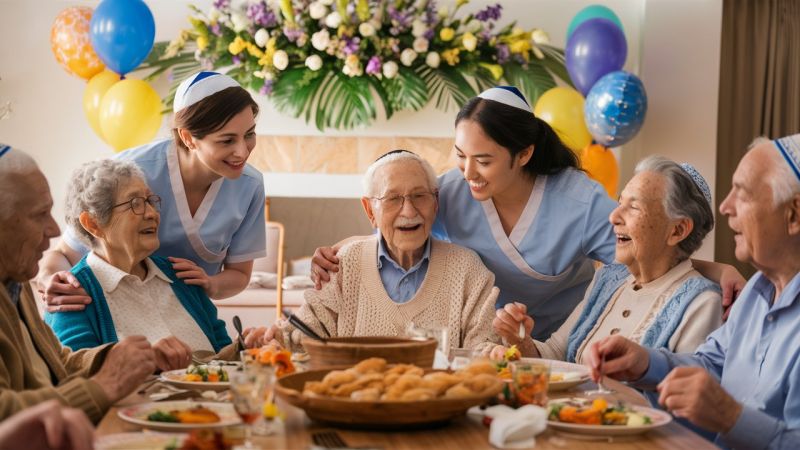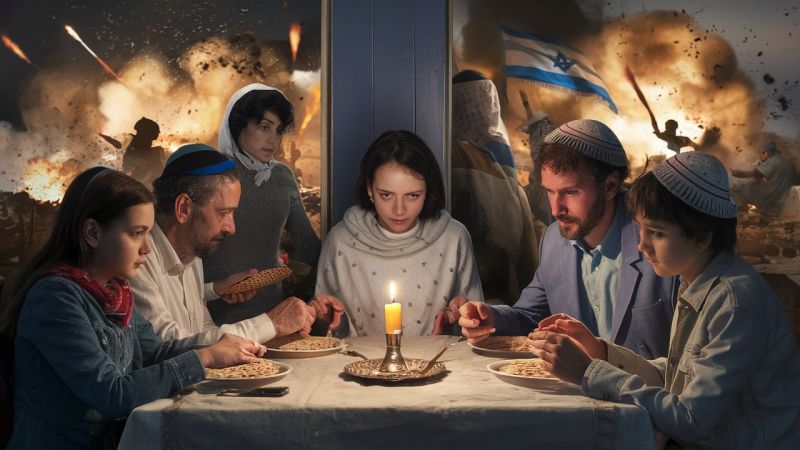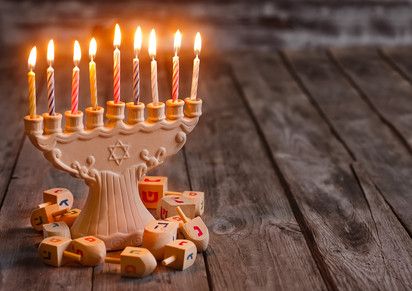Shavuot, also known as the Feast of Weeks, is a significant Jewish holiday that commemorates the giving of the Torah at Mount Sinai. Falling 50 days after Passover, Shavuot is not only a religious festival but also an agricultural celebration marking the end of the grain harvest in Israel. This dual nature of Shavuot—spiritual and agricultural—offers a poignant lens through which to explore the lives and contributions of migrant caregivers in Israel.
Shavuot: Origins and Traditions
Shavuot's origins lie in both the Bible and Jewish agricultural practices. Biblically, it is described as the day when the Israelites received the Torah, a pivotal moment in Jewish history. Agriculturally, Shavuot marks the conclusion of the seven-week counting period known as the Omer, which begins on the second night of Passover. During ancient times, this period was a time of grain harvest, culminating in the offering of the first fruits (Bikkurim) at the Temple in Jerusalem.
Traditions associated with Shavuot include the reading of the Book of Ruth, staying up all night to study Torah (Tikkun Leil Shavuot), and decorating homes and synagogues with greenery. The Book of Ruth, in particular, highlights themes of conversion, loyalty, and harvest, which are deeply relevant to the experiences of migrant caregivers in Israel.
Migrant Caregivers in Israel: An Overview
Israel has a significant population of migrant caregivers, primarily from countries like the Philippines, Nepal, India, and Sri Lanka. These caregivers play a crucial role in Israeli society, providing essential services to the elderly, disabled, and chronically ill. Their work is often undervalued and underpaid, yet they offer an indispensable service, enabling many families to function smoothly.
The journey of these caregivers is often fraught with challenges. They leave their home countries in search of better economic opportunities, sacrificing personal comforts and enduring long periods away from their families. In Israel, they face language barriers, cultural adjustments, and, at times, legal and social challenges. Despite these hardships, they form a vital part of the caregiving infrastructure in Israel.
Shavuot and the Story of Ruth: A Parallel
The story of Ruth, read during Shavuot, provides a poignant parallel to the lives of migrant caregivers. Ruth, a Moabite woman, chooses to stay with her Jewish mother-in-law Naomi after the death of her husband. She declares her loyalty with the famous words, "Where you go, I will go; where you lodge, I will lodge; your people shall be my people, and your God my God" (Ruth 1:16). Ruth’s story is one of migration, loyalty, and integration into a new community, much like the experiences of many migrant caregivers in Israel.
Ruth's eventual marriage to Boaz and her integration into the Jewish community symbolize acceptance and the rewards of hard work and dedication. Similarly, migrant caregivers in Israel often form deep bonds with the families they work for, becoming integral parts of their lives and communities. Their contributions, though sometimes overlooked, are essential to the fabric of Israeli society.
The Agricultural Aspect of Shavuot: Honoring Labor and Contribution
Shavuot’s agricultural roots also resonate with the experiences of migrant caregivers. The holiday celebrates the harvest, a time of reaping the rewards of hard labor. In ancient Israel, this was a period of joy and gratitude for the bounty provided by the land. Today, it serves as a reminder of the value of hard work and the importance of honoring those who contribute to society’s wellbeing.
Migrant caregivers, much like the ancient farmers, engage in demanding work that is fundamental to the functioning of society. Their labor, while often invisible, is critical in providing care and support to the most vulnerable populations. Recognizing their contributions during a holiday that celebrates labor and harvest underscores the need to appreciate and value their work.
Building a More Inclusive Society
Shavuot encourages reflection on community and inclusivity. As we celebrate the giving of the Torah and the agricultural bounty, it is an opportune moment to consider how we can build a more inclusive society that recognizes and honors the contributions of all its members, including migrant caregivers.
Incorporating the stories and experiences of migrant caregivers into the Shavuot narrative can enrich the holiday’s meaning. Just as Ruth was embraced by the Jewish community, there should be efforts to ensure that migrant caregivers feel valued and integrated into the Israeli society. This can be achieved through better legal protections, fair wages, social inclusion programs, and cultural exchange initiatives that bridge gaps between migrant caregivers and the local population.
Practical Steps Forward
To honor the spirit of Shavuot and the contributions of migrant caregivers, several practical steps can be taken:
-
Legal Protections: Strengthening legal frameworks to protect the rights of migrant caregivers, ensuring fair wages, reasonable working hours, and protection against abuse and exploitation.
-
Social Programs: Developing social programs that offer support and integration services for migrant caregivers, including language classes, cultural orientation, and community-building activities.
-
Community Engagement: Encouraging local communities to engage with migrant caregivers through cultural exchange events, shared holiday celebrations, and public recognition of their contributions.
-
Education and Awareness: Promoting awareness about the challenges faced by migrant caregivers and the invaluable role they play in society through educational campaigns and media representation.
-
Conclusion
Shavuot, with its themes of community, loyalty, and the celebration of labor, provides a meaningful context to appreciate and honor the contributions of migrant caregivers in Israel. By drawing parallels between the story of Ruth and the lives of these caregivers, we can foster a deeper understanding and appreciation for their indispensable role in our society. As we celebrate this holiday, let us commit to building a more inclusive and supportive community for all who contribute to its wellbeing.













